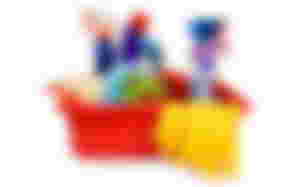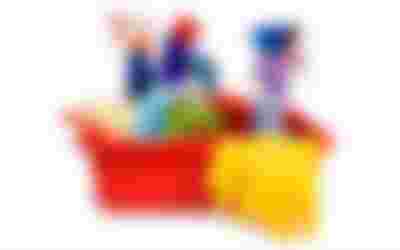The average household contains about 62 toxic chemicals, say environmental experts, and we are exposed to them every day - from phthalates, synthetic odors to harmful gases from oven cleaners.
All of these ingredients in common household products have been linked to asthma, cancer, reproductive and hormonal disorders, and neurotoxicity.
Chlorine is found in toilet cleaners, mold removers and fabric bleaches. Although we take it with tap water, it can cause problems with the airways but also the thyroid gland.
- Symptoms of chlorine inhalation are cough, shortness of breath, which may persist for up to a day or two after exposure. Ingestion of such agents is very dangerous and severe damage to the upper parts of the digestive system is possible, even with the appearance of bleeding. In any case, although the consequences are not fatal, after swallowing this chemical, the help of a doctor must be sought - Plevišić points out.
Phenol or carbolic acid is another common ingredient in cleansers, causing a weakening of the central nervous system. In contact with skin, it can cause ulcers, rashes, bloating and pimples.

The most common chemicals in cleaners
Chlorine - Contains strong cleaning agents. It is suspected to be the cause of chronic bronchitis and asthma and to disrupt the proper functioning of the thyroid gland.
Diethylene glycol - It is an ingredient in window cleaners. It is suspected that it can cause problems with the nervous system.
Petroleum solvent - Can be found in floor cleaners, and can cause damage to cell membranes.
Chlorinated phenol - Possible ingredient in toilet cleaners. It can be the culprit for diseases of the respiratory and vascular systems.
Formaldehyde - A common ingredient in room fresheners, it irritates the respiratory tract.
2-Butoxethanol - Contained in many glass and kitchen cleaners. It is potentially dangerous for the kidneys, liver and respiratory tract.
Perchloroethylene - An ingredient in certain grease removers and carpet cleaners. It poses a danger to the kidneys and liver.
Phenol - Found in some disinfectants. It can be the cause of breathing problems.
Nonylphenol ethoxylate - Ingredient of laundry detergent. It is banned in EU countries because it decomposes into very toxic compounds during washing.
Get the chemicals out of the home, lemon juice and vinegar are the most powerful cleansers
Lemon juice can be used to clean glass, and it is also good for removing stains and unpleasant odors. Cornstarch is good for washing windows, carpets and for polishing furniture.
Essential oils are a good substitute for artificial fragrances, and can also have antibacterial properties.
For problematic fat deposits, you can use alcoholic vinegar in combination with hot water.

Baking soda is good for many things and is not harmful